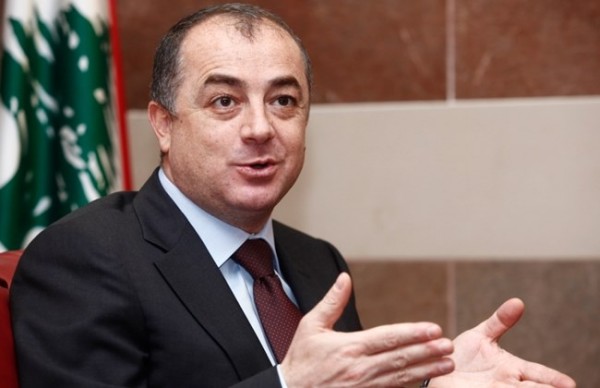 Lebanon Education Minister Elias Bou Saab denied on Friday the existence of an official decision in the United Arab Emirates to deport Lebanese expatriates.
Lebanon Education Minister Elias Bou Saab denied on Friday the existence of an official decision in the United Arab Emirates to deport Lebanese expatriates.
“The names of the Lebanese who were extradited are on a list that includes 5,000 expats from different nationalities,” Bou Saab told al-Akhbar newspaper.
He pointed out that it’s a “routine measure” that is constantly carried out by UAE.
Bou Saab, who is the co-founder of the American University in Dubai and is currently serving as the executive vice president of the establishment, said that he discussed the matter with UAE Prime Minister and Dubai Ruler Sheikh Mohammed bin Rashid al-Maktoum.
The minister, who is renowned for having personal ties with UAE officials, said that concerned authorities confirmed to him that the reports tackling the matter are exaggerated.
“The number of deported Lebanese didn’t surpass 30 individuals,” he noted.
His information conflicts with the reports provide by the Lebanese Consulate in Dubai which reported that 70 Lebanese were deported
Media reports also said at the beginning of the week that the UAE decided to to expel 120 additional Lebanese.
UAE’s decision to deport Lebanese expats from the Gulf country is reportedly related to their staunch support to Hezbollah and its allies.
Over the weekend, a second batch of Lebanese deported from UAE arrived in Beirut. Most of the expats have been residing in Abu Dhabi, Dubai, Sharjah and Ajman.
Suspicious activity
The UAE Authorities took the decision to deport a number of Lebanese from the country due to the suspicious activity they were involved in, the Kuwaiti daily al-Seyassah reported last Sunday.
Parliamentary sources from the March 14 camp told the daily that the authorities had issued dozens of warnings to the deported people over the years to cease their suspicious actions.
These warnings fell on deaf ears and the authorities had no choice but to deport them, they added.
The suspicious activity includes money transfers to Hezbollah and money laundering.
Others were involved in political propaganda for the party and attempts to recruit new members to it, adding that some of the deported people are not Shiites, but offered cover for them.
Arab diplomatic sources told al-Seyassah that there are fears that other Gulf states would follow the example of the UAE and deport Lebanese families “linked to Hezbollah and Iran’s expansionist ambitions in the region.”
Security reasons
Prime Minister Tammam Salam who has been attending the Egyptian Economic Conferece in Sharm el Sheikh last week met the vice president of the United Arab Emirates and Dubai’s ruler, Sheikh Mohammed bin Rashed al-Maktoum to discuss the recent decision to deport the Lebanese citizens .
Sheikh Mohammed reportedly vowed to follow up on the matter with his country’s authorities, stressing that there is no official decision to target the Lebanese living in the UAE.
He pointed out that all measures taken against some Lebanese expats are merely linked to security concerns and don’t exceed this limit.
“The UAE has neither a policy nor an intention to target Lebanese residents.” Salam quoted the Dubai ruler as saying
Hezbollah, which is backed by Iran, has been at odds with the Gulf states, specially since the crisis in Syria started 4 years ago.
The move by the UAE according to some reports is in retaliation to a a speech by Hezbollah chief Hassan Nasrallah in which he strongly attacked the Arab Gulf countries
UAE hosts more than 100,000 Lebanese workers.
Hundreds of Lebanese, mostly Shiite Muslims, have been deported from the UAE since 2009.

Leave a Reply
You must be logged in to post a comment.